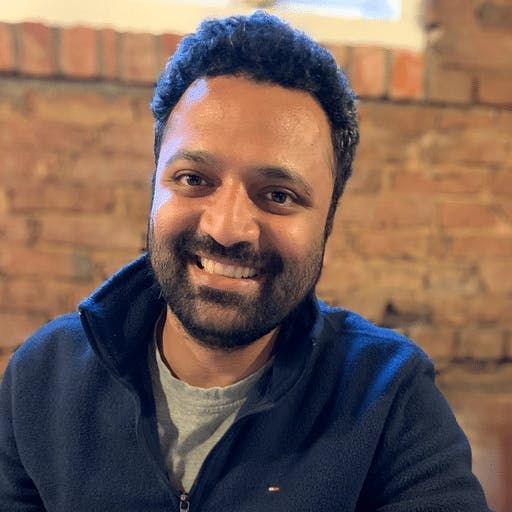COVID-19 May Worsen Biases During The Hiring Process. Here’s How That Can Be Avoided
COVID-19 has disrupted the lives of millions worldwide. It is estimated that unemployment in the US alone will hit 32% — that’s 47 million recent graduates, experienced professionals, minorities, and overseas professionals.1 There is no doubt companies will start to hire skilled and unskilled labour in substantial numbers as we pull through this crisis. But, the ‘new-normal’ presents new challenges for Human Resource (HR) managers. Ethnicity and race-based biases have become more entrenched — all while marginalized communities are suffering disproportionately from the impacts of the virus itself.
As we rebuild from COVID-19, individual and group identities will emerge based on one’s experience during the crisis. It might then become far too easy for us to judge others based on their past behavior; for example, compliance with quarantine rules, actual infection status, race,2 and perhaps most importantly, job status during the crisis. Such information could create pitfalls that HR managers may find themselves in when evaluating candidates.
References
- Davidson, Paul. (2020). Unemployment could top 32% as 47M workers are laid off amid coronavirus: St. Louis Fed. USA Today, retrieved from https://www.usatoday.com/
- Harvard Kennedy School. (2020). Big, If True Webinar: Race, Xenophobia, and COVID-19. Youtube, retrieved from https://www.youtube.com/
- Goodman, S. A, Svyantek, D. J. (1999). Person-Organization Fit and Contextual Performance: Do Shared Values Matter. Journal of Vocational Behavior, 254-275.
- Verquer, M. L., Beehr, T. A., Wagner, S. H. (2003). A meta-analysis of relations between person-organization fit and work attitudes. Journal of Vocational Behavior, 473-489.
- Greenwals, G. G., Banaji, M. R. (1995). Implicit Social Cognition: Attitudes, Self-Esteem, and Stereotypes. Psychological Review, Vol 102, No. 1, 4-27.
- Dawes, R. (1988). Rational Choice in an Uncertain World. USA: Harcourt Brace Jovanovich
- Gaucher, D., Friesen, J., Kay, A. C. (2011). Evidence That Gendered Wording in Job Advertisements Exists and Sustains Gender Inequality. Journal of Personality and Social Psychology, Vol. 101, No. 1, 109–128.
- Baguesa, M., Perez-Villadonigab, M. J. (2012). Do recruiters prefer applicants with similar skills? Evidence from a randomized natural experiment. Journal of Economic Behavior & Organization, 82, 12– 20.
- Bertrand, M., Mullainathan, S. (2004). Are Emily and Greg More Employable Than Lakisha and Jamal? A Field Experiment on Labor Market Discrimination. The American Economic Review, Vol. 94, No. 4, 991-1013.
- Ziegert, J. C., Hanges, P. J. (2005). Employment Discrimination: The Role of Implicit Attitudes, Motivation, and a Climate for Racial Bias. Journal of Applied Psychology, Vol. 90, No. 3, 553–562.
- Blanding, D., Solomon, D (2020). The Coronavirus Pandemic Is Fueling Fear and Hate Across America. Center for American Progress. Center for American Progress, retrieved at https://www.americanprogress.org
- Bohnet, I., van Geen, A., Bazerman, M. (2016). When Performance Trumps Gender Bias: Joint vs. Separate Evaluation. Management Science, 62(5), 1225-1234.
- Goldin, C., Rouse., C. (2000). Orchestrating Impartiality: The Impact of ‘Blind’ Auditions on Female Musicians. The American Economic Review, Vol. 90, No. 4, 715–741.
About the Author
Siddharth Ramalingam
Siddharth’s diverse education and experience feed his interest in the applicability of behavioral science in understanding our world and solving big problems. His work encompasses international development, consulting, finance, and social innovation. Apart from an MPA from Harvard University, he also has graduate degrees in Political Theory, Human Rights Law, Management, and Economics.
About us
We are the leading applied research & innovation consultancy
Our insights are leveraged by the most ambitious organizations
“
I was blown away with their application and translation of behavioral science into practice. They took a very complex ecosystem and created a series of interventions using an innovative mix of the latest research and creative client co-creation. I was so impressed at the final product they created, which was hugely comprehensive despite the large scope of the client being of the world's most far-reaching and best known consumer brands. I'm excited to see what we can create together in the future.
Heather McKee
BEHAVIORAL SCIENTIST
GLOBAL COFFEEHOUSE CHAIN PROJECT
OUR CLIENT SUCCESS
$0M
Annual Revenue Increase
By launching a behavioral science practice at the core of the organization, we helped one of the largest insurers in North America realize $30M increase in annual revenue.
0%
Increase in Monthly Users
By redesigning North America's first national digital platform for mental health, we achieved a 52% lift in monthly users and an 83% improvement on clinical assessment.
0%
Reduction In Design Time
By designing a new process and getting buy-in from the C-Suite team, we helped one of the largest smartphone manufacturers in the world reduce software design time by 75%.
0%
Reduction in Client Drop-Off
By implementing targeted nudges based on proactive interventions, we reduced drop-off rates for 450,000 clients belonging to USA's oldest debt consolidation organizations by 46%




















